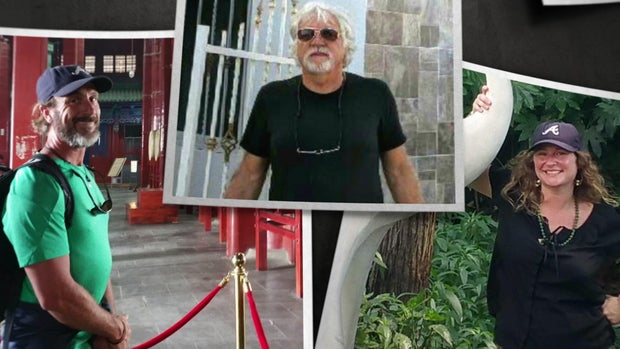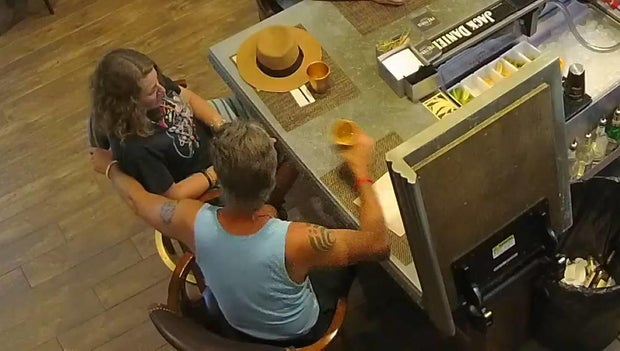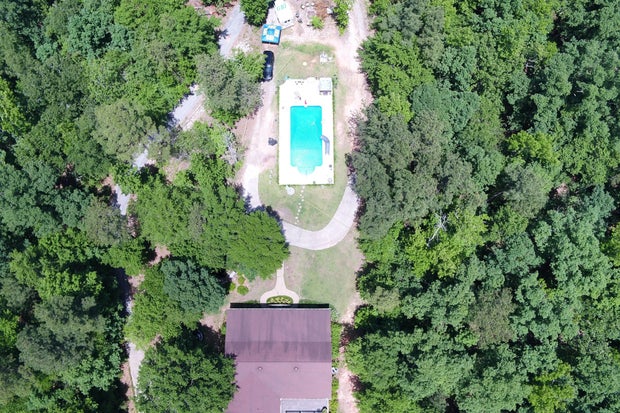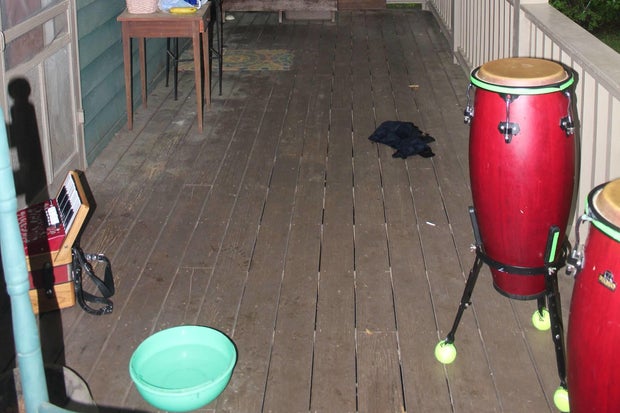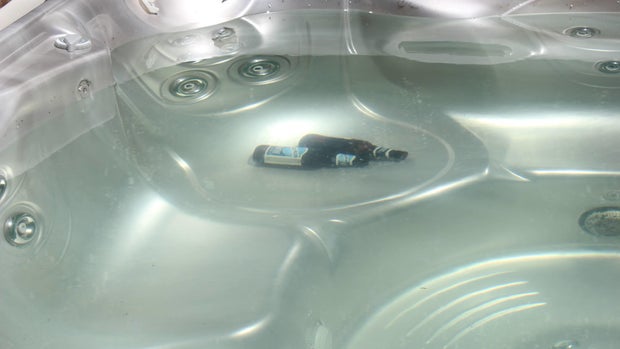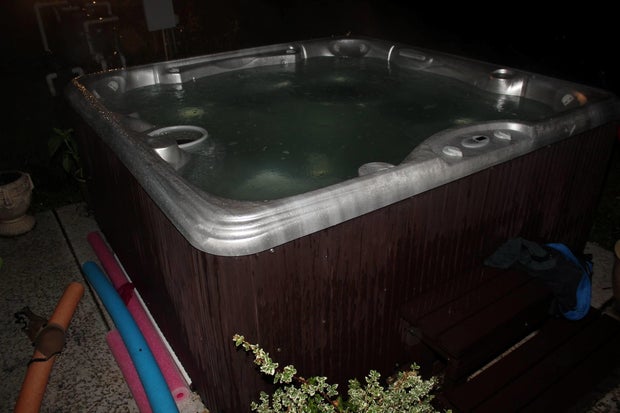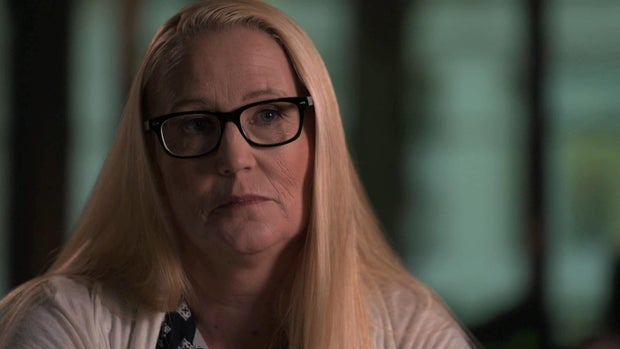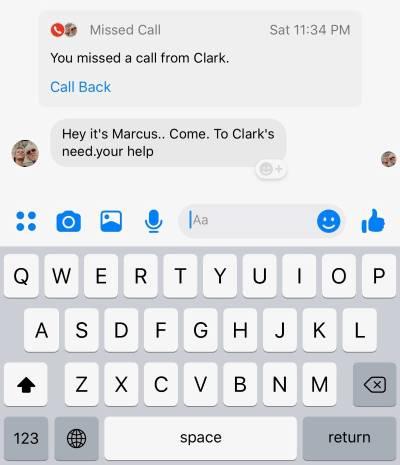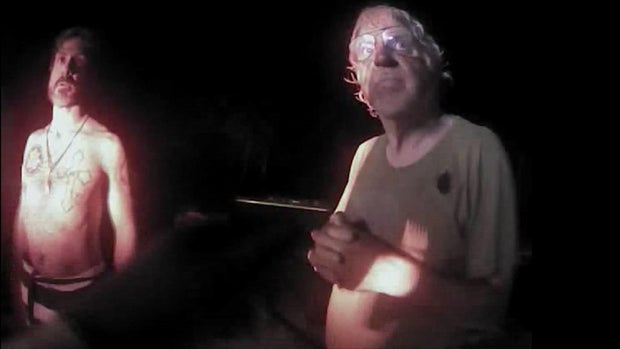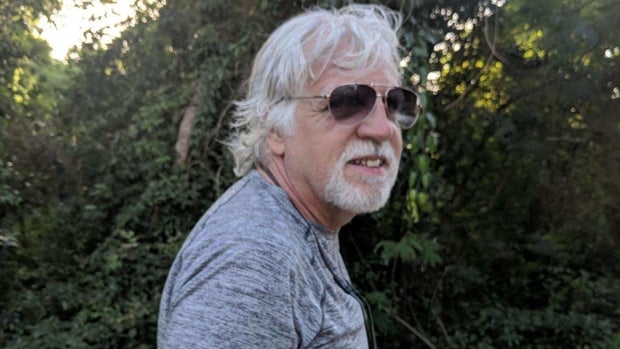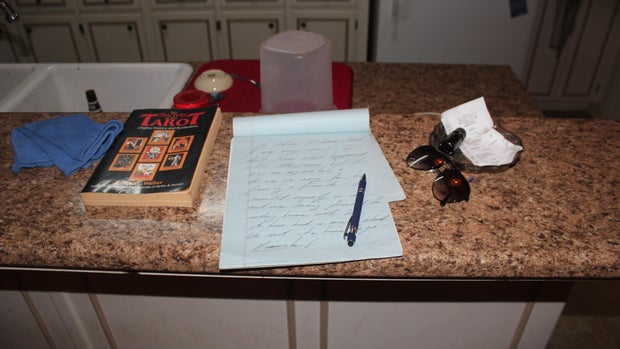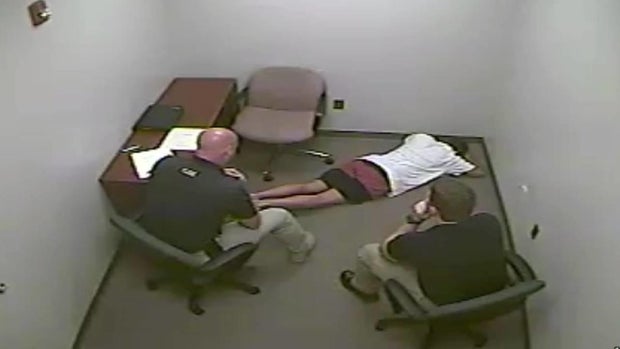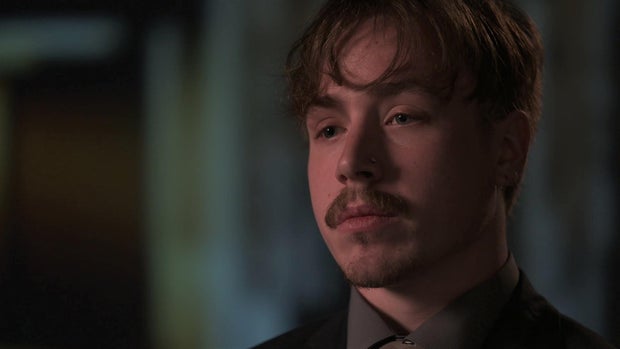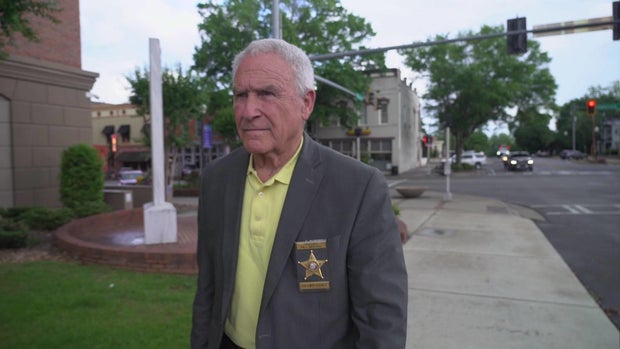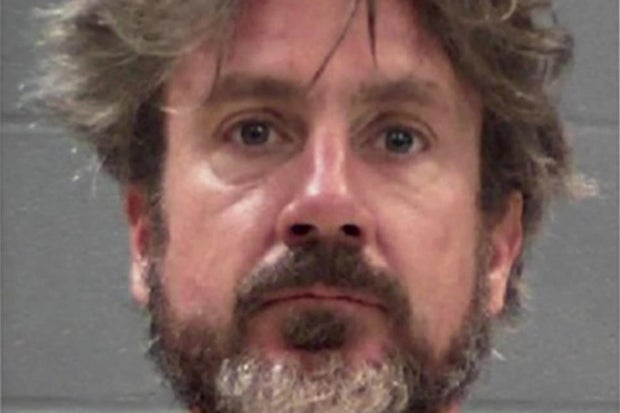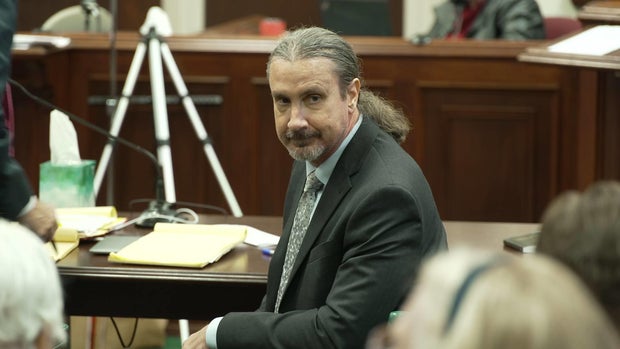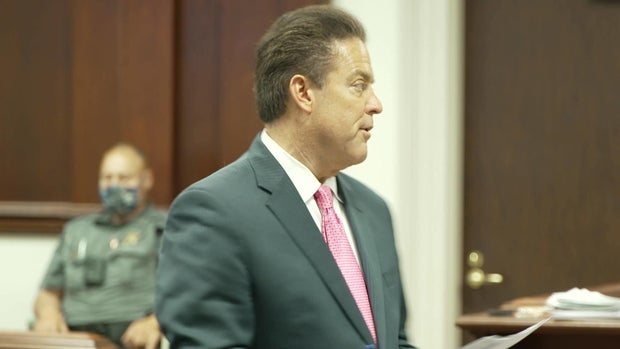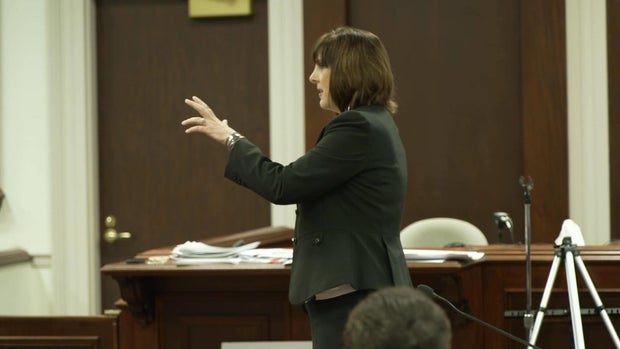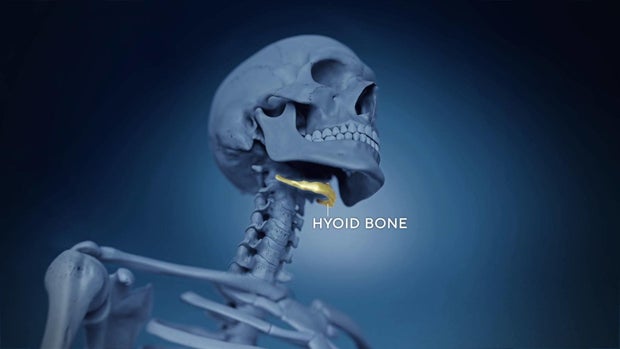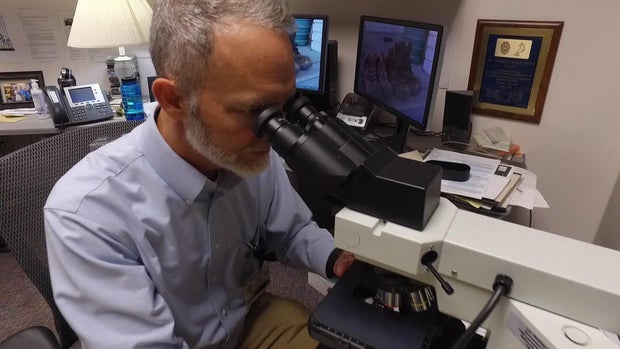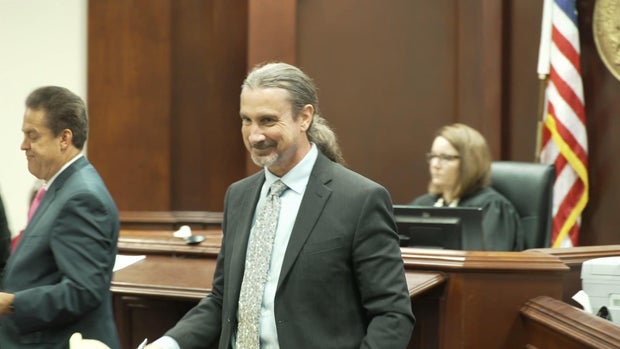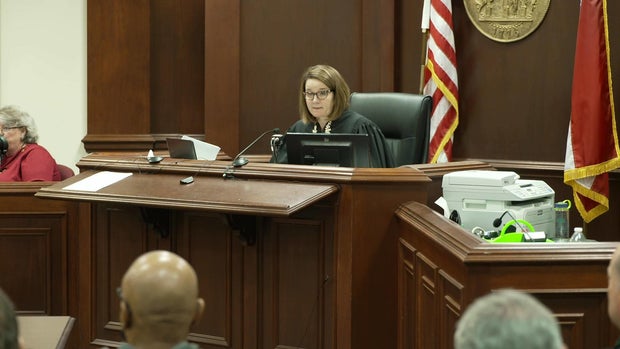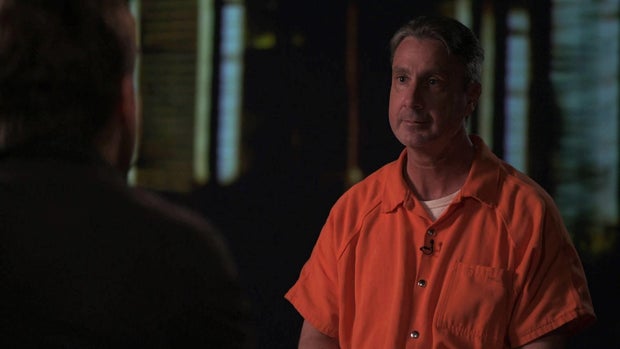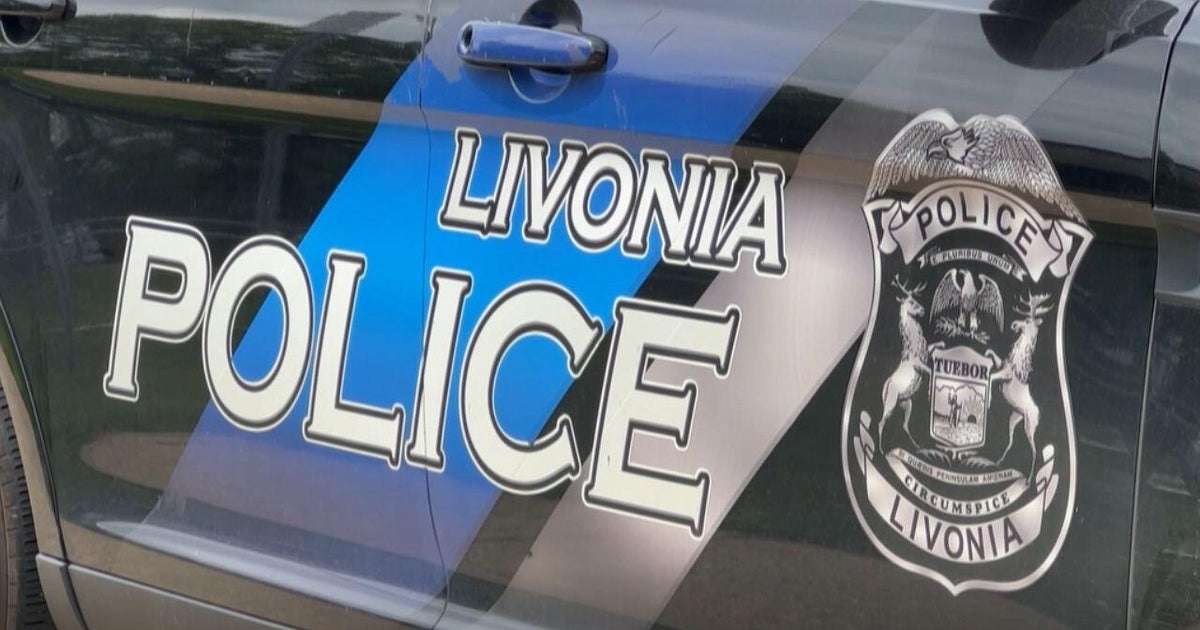Ecstasy, "evil" and a hot tub: The strange circumstances in the death of Marianne Shockley
In the early morning hours of May 12, 2019, Baldwin County, Georgia, sheriff's deputies responded to a 911 call and found Marianne Shockley (right), dead near her friend Clark Heindel's (center) pool in Milledgeville. Within hours, Clark was also deceased and there was only one survivor from the get together that night: Marianne's boyfriend Marcus Lillard (left).
"Doc Shock"
Marianne Shockley was a celebrated professor at the University of Georgia where she taught entomology, the study of insects. She was known on campus as "Doc Shock." Her passion for insects extended into the field of entomophagy: the practice of eating insects. She believed they could be a solution for world hunger.
The start of summer break
It was May 11, 2019, and Marianne had just finished the school year. Marianne and her boyfriend, Marcus Lillard, had spent the day together, drinking at bars and restaurants in Milledgeville, Georgia. Here they can be seen on CCTV footage at a local bar and restaurant called Aubri Lane's.
Seeing a friend
In a text from earlier that day, Marianne had asked Marcus if he knew anyone with a pool. Marcus mentioned their friend Clark Heindel, who was a yoga instructor and former psychologist. After an afternoon of drinking, the couple headed to Clark's house.
Party of three
Marcus told authorities he and Clark had an impromptu jam session with Marcus on the conga and Clark playing the accordion. Eventually, Marcus says, the three of them took ecstasy pills that Clark provided.
"It got all fuzzy after that," Marcus said.
Fuzzy recollection
Marcus later told investigators that he thought he and Marianne got into Clark's hot tub around 9 p.m. At one point Marcus left the hot tub. He says Marianne pleaded with him to come back into the water, but he went into the woods instead. Although Marcus initially told authorities he went into the woods to find firewood, he later revealed that in his intoxicated state, he had gone to attempt to recreate a scene from a documentary called "The Last Shaman" in which a man buries himself alive as part of a ritual to overcome his fears. Instead of digging a hole, Marcus says he laid down in the woods and does not remember how long he was there.
Marianne in the hot tub
When he returned to the pool area, Marcus says he could see Marianne slumped down in the hot tub, up to her nose under water. Marcus says he pulled Marianne out of the hot tub and placed her on the pool deck. Marcus admits that in the process, he dropped Marianne, causing her to suffer a gash on her forehead. Up to this point, Clark said, he had been swimming at the far end of the pool. Marcus says Clark approached him and suggested calling 911. Marcus says he decided against it and instead, they tried to perform CPR on Marianne.
A possible explanation
Penny Dearmin, who created the podcast "Blood Town" about this case, believes Marcus delayed calling the police because of his own criminal history. At the time, he was on probation for a 2015 conviction for selling marijuana and possessing methamphetamine and cocaine. Detectives later found drugs at the scene.
Unsuccessful attempts to save Marianne
While trying to perform CPR on Marianne, Marcus says Clark found some hydrangea branches and shook them around her body. Marcus suggested to investigators that it was a tribal practice Clark had picked up in Peru. According to Marcus and Clark, it sounded to them like Marianne was still breathing. Marcus called and messaged numerous friends and acquaintances from Clark's phone to try to get help for Marianne, to no avail. Marcus dialed his ex-wife from Clark's phone, and she told him he needed to call 911. It's unclear how much time passed, but Clark eventually called 911 at 1:06 a.m.
The authorities arrive
Baldwin County Sheriff's deputies and EMTs arrived on the scene soon after. In bodycam footage, deputies can be heard remarking about the eerie feeling in the air.
"I'm telling you, the hair on the back of my neck's standing up. Somethin' ain't right with this," says one deputy.
Investigators believe Marianne had been dead for at least two hours before help arrived. They questioned Marcus (left) and Clark (right) about why they did not call 911 sooner, the gash on Marianne's head, and their whereabouts when she was in the hot tub.
A second death
Deputies separated Marcus and Clark from each other until they could be interviewed by investigators. Marcus was handcuffed and placed in the back of a patrol car, but Clark wandered off after the deputy watching him got a phone call. No one noticed that Clark had gone into his house until deputies heard a loud, muffled noise come from inside. They rushed into the house and discovered Clark in his bathroom with a self-inflicted gunshot wound to the head.
"A terrible mistake"
When questioned about how this happened, Baldwin County Sheriff Bill Massee told "48 Hours" that it was a breach of protocol not to detain Clark at the scene. He says one of the deputies knew Clark and likely felt that he did not pose a threat.
"Small town, we know everybody … And he just felt comfortable that nothin' was gonna happen," said Massee. "[I]t was a terrible mistake. And it — and it dramatically affected this case."
Sheriff Massee says Clark was well-known and liked in the community. He had gone through some hard times including losing his 6-year-old son to cancer and recently losing his psychology license, but he had many friends and supporters throughout Milledgeville.
The note
Sheriff Massee found a handwritten note written by Clark on his kitchen counter. In the letter Clark wrote, "I don't know what happened with [Marianne], but it was on my watch …" The letter also said that he was "so sorry for her family and friends" and advised his heirs of how to handle his possessions.
Marcus is taken in for questioning
There was now only one survivor from the scene that night. Deputies had previously put Marcus in the back of a patrol car while they investigated the crime scene, but shortly after they realized Clark was dead, Marcus was taken in for questioning.
Marcus was interviewed by Michael Maybin, a special agent for the Georgia Bureau of Investigation, also known as the GBI. Maybin questioned Marcus to get his account of the events of the night.
Maybin told Marcus that while he was in the patrol car, Clark had gone into his home and shot and killed himself. Video from that interview shows Marcus falling to the floor when he learned his friend was dead.
Marcus immediately began speculating that Clark must have gotten into the hot tub and "done something" to Marianne while he was in the woods. Then Marcus did an about face and stated that there was no way Clark could have harmed Marianne.
Investigators found no proof that Clark did anything to Marianne that night and were eventually able to clear him as a suspect.
The son blames his father
As soon as he heard Marianne was dead, Marcus' son, Carson Lillard, speculated that his father was guilty of her murder. Carson had seen Clark for therapy when he was 14 years old and the two had become friends. He believed Clark never would have hurt Marianne, but that Marcus was capable.
"I knew Clark. And — and I knew Marcus. And you know, I knew a peaceful man, and I knew an angry man," said Carson.
Sheriff Massee receives a tip
The day after Marianne's death, Sheriff Massee got a call from an ex-girlfriend of Marcus with a surprising revelation. The woman said Marcus often choked her during sex - once to the point that she lost consciousness. She told investigators she fell to the floor and Marcus left her there. Marcus says that was an exaggeration.
The autopsy findings
When the autopsy results came back, they revealed that Marianne had been strangled to death. Medical Examiner Dr. Melissa Sims-Stanley wrote that Marianne "died as a result of asphyxia due to strangulation. The manner of death in this case is best classified as homicide."
Marianne's sister, Ayla Crippen, believes Marcus was responsible for the death.
"I believe that they were having sex, and he choked her, and that is what caused her death," she told "48 Hours."
Investigators focus on Marcus
Marcus became the focus of the investigation. Maybin sat Marcus down for another interview and told him the findings from the autopsy report.
"Strangulation is what killed her, OK … you need to tell me what the hell happened because you know, and we need to talk about it," said Maybin.
Marcus maintained that he did not know what happened to Marianne. On May 13, 2019, the day after Marianne's death, Marcus was charged with her murder. He was formally indicted nearly two years later in March 2021 and charged with four counts: felony murder, aggravated assault, involuntary manslaughter, and reckless conduct. He was ordered held without bond.
The trial
Largely because of the Covid-19 pandemic, nearly three years went by before Marcus stood trial for the murder of Marianne Shockley. On April 4, 2022, the trial began at the Baldwin County Courthouse in Milledgeville, Georgia.
The defense
Marcus was represented by defense attorney Matt Tucker.
Tucker argued Marianne's death could have been an accident caused by a fatal combination of drugs, alcohol, a hot tub at a temperature of 107 degrees, and Marianne's cardiomegaly - an enlarged heart. In his closing argument he told jurors Marcus' guilt could not be proven beyond a reasonable doubt
The prosecution
Assistant district attorneys Tammy Coffey and Nancy Malcor (pictured) prosecuted the case. Coffey believes this is what happened between Marcus and Marianne on the night she died:
"After they got in the hot tub, I think that they engaged in sex," said Coffey. "I think he choked her. I think he choked her too hard and for too long."
Assistant District Attorney Malcor told "48 Hours" there was no clear evidence of any sexual activity because Marianne's body had been in the hot tub for a prolonged period of time.
GBI agents investigated the theory that Marcus choked Marianne that night. They questioned former sex partners of Marcus and found eight women who claimed that Marcus had in fact choked them during sex. Prosecutors put six of the women on the stand and each one testified that Marcus choked them or attempted to choke them during sex. Two of the women told jurors Marcus had choked them until they passed out.
The question of the hyoid bone
In reviewing the autopsy results, Tucker noticed that the hyoid bone in Marianne's neck was intact and not broken. Some experts, including a surgeon Tucker consulted, consider that unusual in a strangulation case.
Tucker suggested that the person who strangled Marianne may have been too old or too weak to break her hyoid bone, which he believed could point to Clark as the culprit. The medical examiner was put on the stand to testify to her findings from the autopsy. Tucker says she agreed that someone of Clark's age would fit that description.
A different theory
"48" Hours sent all the autopsy information to Dr. Greg Davis, a forensic pathologist not involved with the case for review. After examining the documents and autopsy photos, Dr. Davis said that it was possible Marianne was strangled, but he had another theory.
"A valid competing cause of death is sudden cardiac death due to mixed drug intoxication, a lethal mix of MDMA, alcohol, and marijuana with a contribution from underlying heart disease," Dr. Davis said in an email to "48 Hours."
The verdict
The trial moved swiftly. Jury selection started on a Monday and by that Friday afternoon, April 8, 2022, the case went to the jury. The jury found Marcus Lillard not guilty on all charges.
The judge's sentence
Although Marcus was found not guilty of the charges, Judge Alison Burleson found that he had violated probation for his 2015 drug conviction. Marcus was remanded to prison and could remain there until October 2030. His attorney says it's likely he'll be released sooner.
Marcus speaks out
In his interview with" 48 Hours" Marcus reflected on the incident and his relationship with Marianne.
"[M]y conscience is very clear when it comes to Marianne," said Marcus. "Do I miss Marianne? Yeah. I was lucky to get that time with her that I did. And I cherish that. But … no part of this was my fault."
